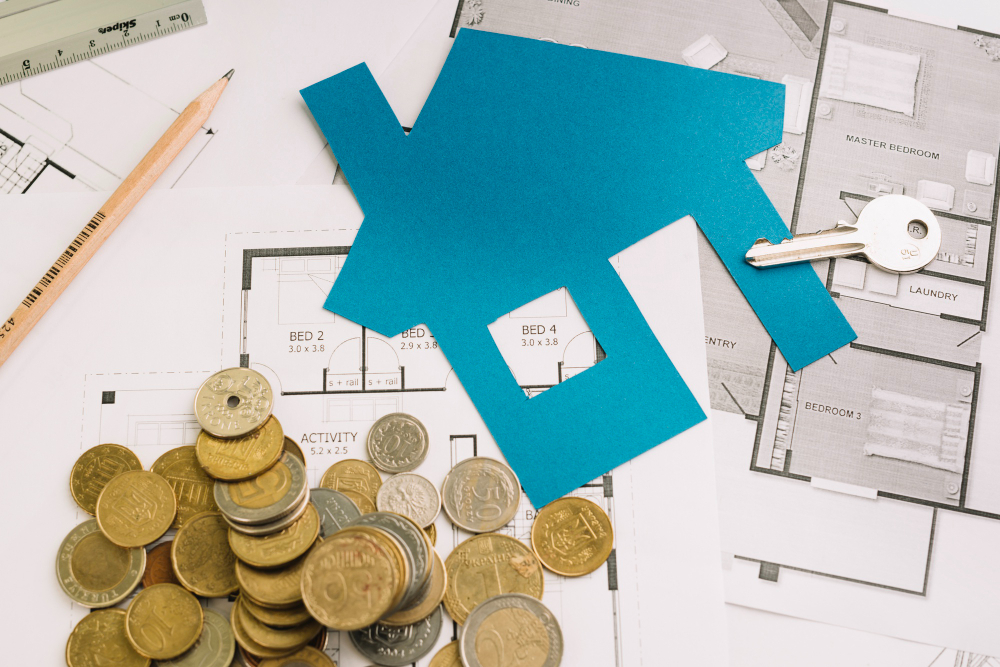
How to Save for a House with a Low Income: Achieving Homeownership on a Tight Budget
Owning a home is a dream for many, but for individuals with a low income, it may seem out of reach. However, with proper planning, discipline, and smart financial strategies, achieving homeownership on a tight budget is entirely possible. In this blog, we will explore practical steps and strategies for saving for a house when you have a limited income. With determination and the right approach, you can set yourself on the path to homeownership.
Understanding Your Financial Situation
Before you begin saving, it’s essential to understand your current financial situation. This step will provide clarity on where you stand and how much effort is required to achieve your goal.
Assessing Your Income and Expenses
The first step in planning for homeownership is to thoroughly assess your income and expenses. Create a detailed budget that includes all sources of income and all regular expenses, such as rent, utilities, food, and transportation. This will give you a clear picture of your financial health and help you identify areas where you can reduce costs.
Setting a Realistic Savings Goal
Once you have a clear understanding of your finances, you can set a realistic savings goal. Research the cost of homes in your desired area and determine how much money you will need for a down payment, closing costs, and other associated fees. Having a specific target will help you stay focused and motivated throughout the savings process.
Tips to Save Money on a Low Income
Saving money while living on a tight budget requires commitment and a combination of practical strategies. Here are several tips to help you save for a home, even with a low income:
1. Automate Your Savings
One of the most effective ways to save money is by automating your savings. Set up a separate savings account specifically for your home fund and automate regular transfers from your checking account. By making saving automatic, you’ll ensure that money is consistently being set aside for your future home, without having to think about it.
2. Cut Unnecessary Expenses
When you have a low income, every penny counts. Look for areas in your budget where you can cut back on spending. This could include dining out less, canceling unused subscriptions, or finding cheaper alternatives for your everyday needs. Even small adjustments can add up over time, freeing up more money to put toward your down payment.
3. Increase Your Income
While saving on a low income is essential, increasing your income can accelerate your ability to save for a house. Consider taking on a part-time job, starting a side business, or freelancing in your spare time. Even a small boost in income can significantly impact your savings goals.
4. Avoid High-Interest Debt
High-interest debt, such as credit card balances, can drain your finances and make it harder to save. Focus on paying off high-interest debts as quickly as possible to free up more money for saving. If you can, avoid taking on new debt while you’re in the process of saving for your home.
5. Take Advantage of Government Programs
Many governments offer assistance programs for first-time homebuyers, including down payment assistance, reduced mortgage rates, and other benefits. Research local programs in your area to see if you qualify for any financial assistance. These programs can provide much-needed relief and make it easier for you to save for a house.
Strategies for Saving for a House with a Low Income
While the above tips are essential, there are additional strategies that can help you reach your savings goal faster.
1. Set a Budget for Housing
While it may seem counterintuitive, setting a strict budget for your housing costs is key when saving for a house. Many people spend a large portion of their income on rent, which can make saving for a home challenging. If possible, consider moving to a more affordable rental or sharing living expenses with a roommate to free up more money for saving.
2. Use a High-Yield Savings Account
Traditional savings accounts offer low interest rates, but a high-yield savings account can help your savings grow faster. Research different banks and credit unions to find the best savings accounts with the highest interest rates. Although the returns may be modest, over time, the extra interest will help you reach your goal more quickly.
3. Downsize Your Lifestyle
To save more money, consider downsizing your lifestyle. This could mean living in a smaller space, selling items you no longer need, or even moving to a less expensive area. The goal is to live frugally so that you can allocate more money toward your home fund.
4. Build Your Credit Score
A good credit score is essential when applying for a mortgage. Lenders use your credit score to determine the interest rate on your loan and whether you qualify for a mortgage in the first place. Take steps to build or improve your credit score by paying bills on time, reducing your debt, and checking your credit report regularly.
5. Save for a Bigger Down Payment
While saving for a down payment may seem like a daunting task, the more you can save upfront, the better off you’ll be. A larger down payment reduces the amount you need to borrow and can lower your monthly mortgage payments. Aim for at least 20% of the home’s price, but if that’s not possible, save as much as you can and look for loan programs that require a smaller down payment.
Staying Motivated on Your Homeownership Journey
Saving for a house with a low income requires discipline, patience, and perseverance. It’s not an easy journey, but the rewards are well worth the effort. Stay motivated by regularly reviewing your progress and celebrating milestones along the way. Whether it’s reaching your first savings target or improving your credit score, acknowledging your achievements will keep you focused on your goal.
Focus on the Long-Term Goal
It’s easy to get discouraged when progress feels slow, but it’s important to keep your long-term goal in mind. Homeownership is a major financial milestone, and it takes time to save enough money for a down payment and closing costs. Stay focused on the end goal, and remember that every small step brings you closer to homeownership.
Create a Support System
Saving for a home on a low income can feel isolating, but having a support system can make a big difference. Talk to friends and family members about your goals and seek advice from those who have already achieved homeownership. Surrounding yourself with positive influences will help you stay on track and motivated.
Conclusion
Saving for a house with a low income requires careful planning, commitment, and determination. By following the strategies outlined above, such as automating savings, cutting unnecessary expenses, and increasing your income, you can make homeownership a reality, even on a tight budget. Remember, every small step counts, and with patience and perseverance, you will achieve your dream of owning a home. Stay focused, stay disciplined, and the rewards will come.

















